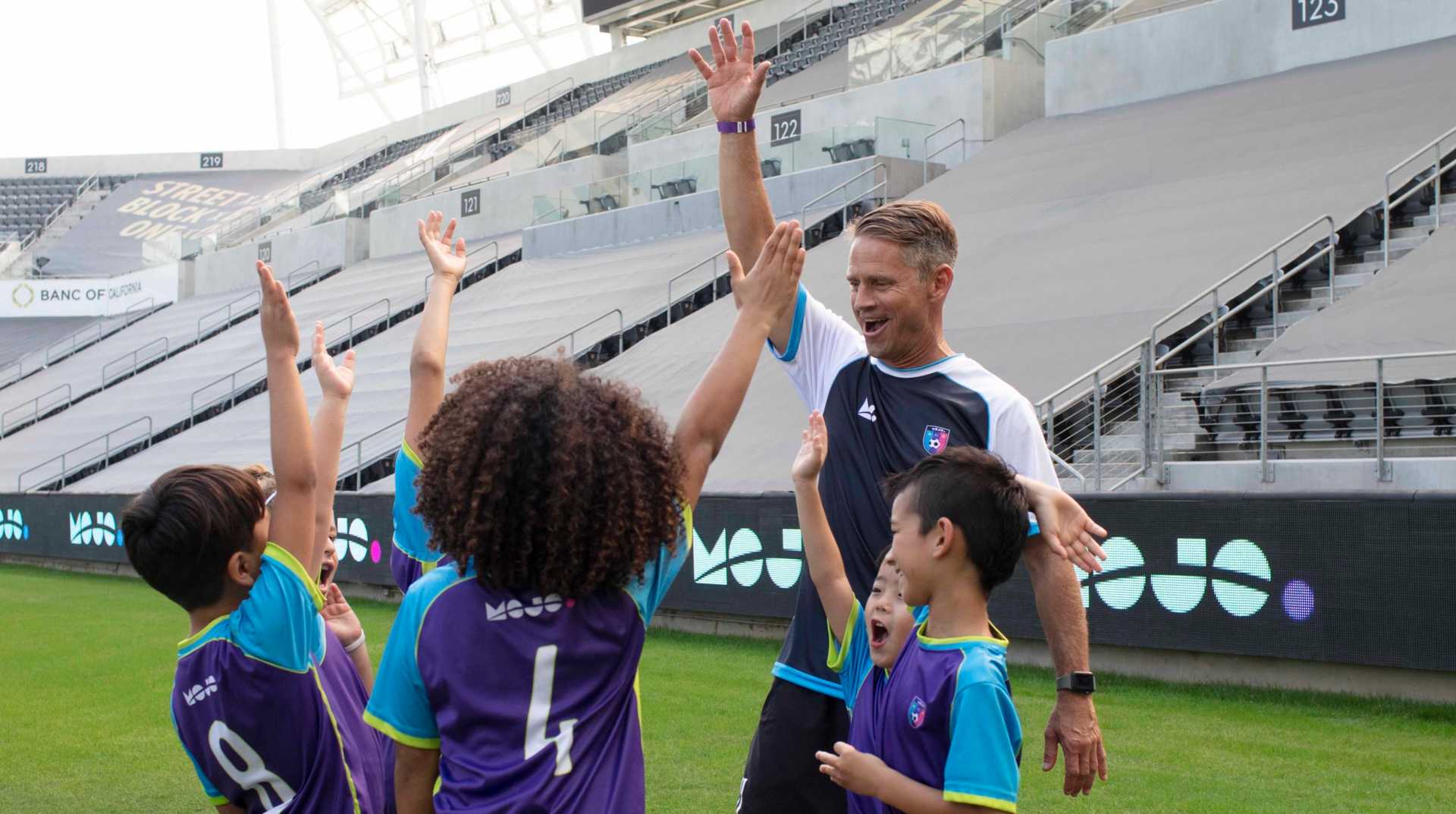This Is Not Basic Training
Why whistles, "drills" and other things that feel like boot camp should be a thing of the past.
Sarah Lindenfeld Hall
| 5 min read

Canva
We all can picture that stereotypical coach. The tracksuit. The whistle around the neck. The precise military-like drills. The yelling of commands to the kids on the field.
And that’s because there’s long been a connection between the military and athletics, says Jenny Etnier, Phd, professor in the department of kinesiology at the University of North Carolina at Greensboro. Historically, sports and physical education have been used to retrain the public to ensure they’re fit for military service. And there also have been generations of coaches who have believed that running their athletes through a form of basic training each week was the best way to teach them the game, she says.
But 8-year-old soccer players aren’t preparing to serve. And they also don’t learn and grow in the game — and life — when their coach is a tyrant with a whistle, says Etnier, author of Coaching for the Love of the Game and co-chair of MOJO’s Academic Advisory Board.
“Sport is an opportunity for kids to control their own destiny a little more — for kids to get out and play,” she says. “If, as adults, we take that away from them because of our goals of having a structured practice where we believe we’re maximizing learning, we’re going to chase them away. And the irony is that’s not how they learn best. They learn best when they have freedom of choice within a structured environment.”
Those drill commander-like coaches have some common tools of the trade. They blow whistles to call out mistakes or shift to a new activity. They rely on drills that provide little autonomy. And they use physical fitness as punishment or a replacement to actually teaching the game.
There are better ways to reach young athletes.
Put down the whistle
Some coaches try to build a highly disciplined team that moves completely in sync like a military unit. In their mind, the whistle is the only way to quickly alert their troops, or players, to a mistake or transition.
“When coaches approach the sport as if my job is to create this well-oiled machine where everybody moves together, then a whistle probably serves its purpose,” Etnier says. “But that’s not the purpose of youth sports.”
A whistle is an abrasive and jarring way to provide feedback to kids, who are there to have fun and learn, Etnier says. “It’s not nurturing, supportive and helpful. It’s sending the wrong message.”
When they’re simply listening for the next loud whistle, players can’t develop their own self-awareness, so they can become students of the game, she says.
Instead of blowing the whistle each time a player does something wrong during practice, look for teachable moments, Etnier recommends. During a scrimmage, those moments might come at a turnover when a coach can stop play and talk about what went well and not so well, she says. Then, let play continue for some time, even if mistakes are made, before stopping it again to talk about what happened.
Stop with the drills
Drills might be great at basic training, but not at a U7 soccer practice. Players learn very little during a standard shooting drill, for example, where they line up and shoot the ball, one at a time, from the same spot on repeat, Etnier says. That’s because, during a game, there are millions of potential positions to shoot the ball from, not one single point.
A better way is to design activities or games, not drills, that allow for less controlled and more game-like movements during practice, she says. Coaches still might give players some instructions about where they can pass or when they can shoot but allow for some autonomy because not every ball touch will go as planned. “To become a skillful shooter, I need the variety and randomness that happens in free play,” Etnier says.
Don’t discipline with sprints
Drill sergeants are famous for leading their charges through harrowing tests of physical fitness. That doesn’t belong on a youth soccer field.
Physical activity should never be used as punishment, Etnier says. And precious practice time shouldn’t be spent on sprints. “Children who have not yet gone through puberty are not going to experience meaningful changes in their fitness level in response to training,” she says. “It’s a complete waste of time.”
Instead, build practices that require so much movement and physical activity that fitness training becomes irrelevant, Etnier says.
But what if the kids need a stern taskmaster to lead them through regimented drills because they keep goofing off?
The problem might not be distracted kids, Etnier says.
“If you set up the activity and all of your adjustments and rules don’t work, then your activity wasn’t a good one to start with,” she says. “It wasn’t the children’s fault.”
If they’re not doing what you intended for them to do, she adds, nine times out of 10, it’s not them — it’s you.
Related articles
3 Things to Avoid When Coaching Soccer




